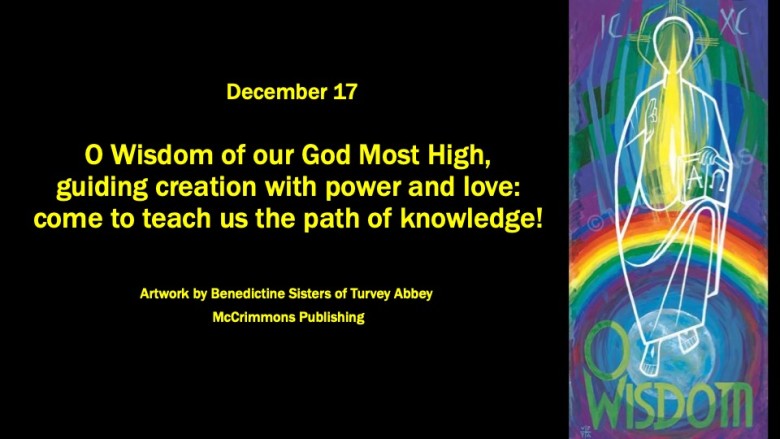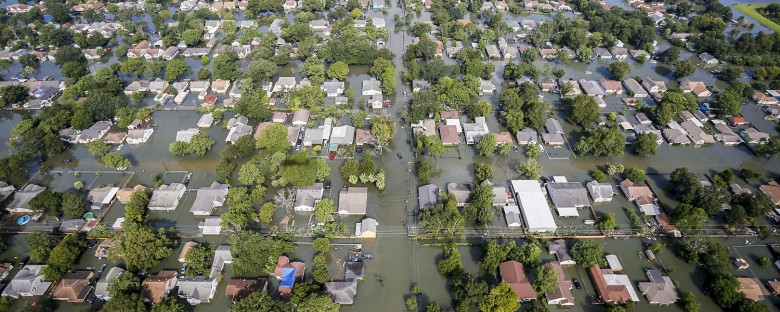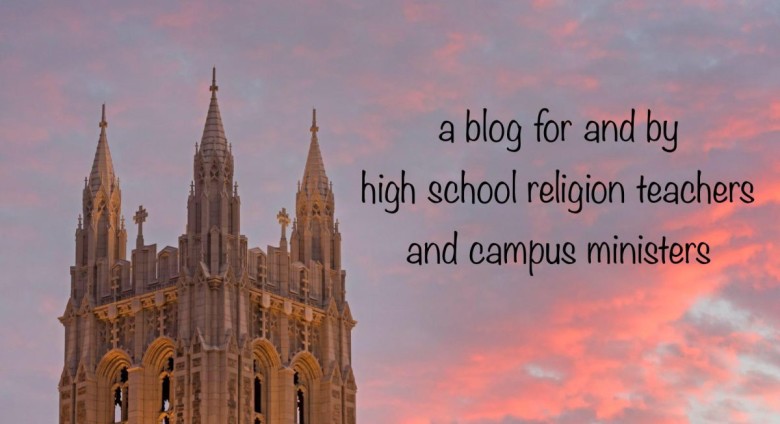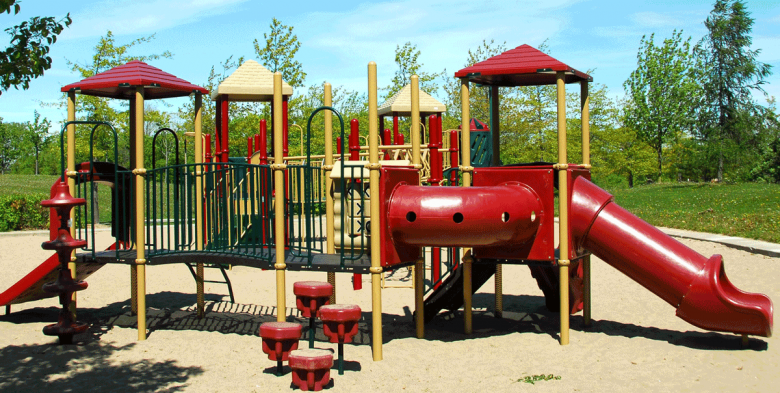Anyone who has seen me in the past few weeks knows that I recently taught an Adult Faith Formation class on the Book of Psalms. Why? Because I can’t stop talking about it. I have completely geeked out with research, reading, and passion for the Psalms.
What I learned has had a profound impact on both my spirituality and my theological appreciation for the Psalms themselves. It’s changed the way I view suffering and how we pray about our struggles. Frankly, it’s changed the way I view most everything.
This week, I’ve noticed this change quite clearly while scrolling through Facebook. The first anniversary of Hurricane Harvey has dominated my feed. Many friends have reposted memories and pictures from the devastating flooding. I was particularly struck by my friend Christina’s post:
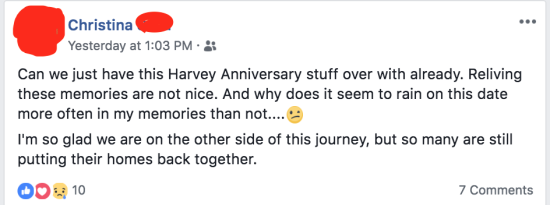
I heard the suffering in Christina’s post: both her own struggle reliving painful memories, and her awareness that “many are still” suffering.
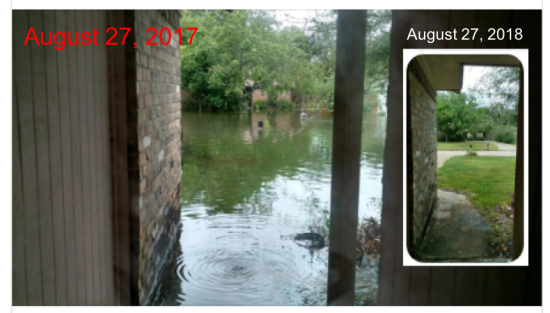
A year ago…

…as the flood waters came into their home, Christina and her husband Anthony, their kids and pets were rescued by boat.
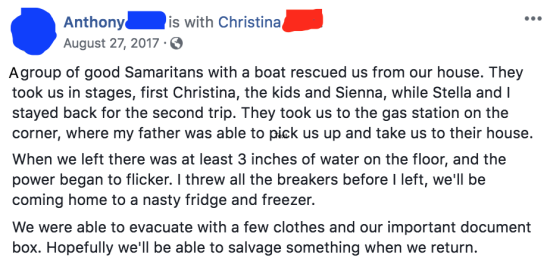
Then they waited.

Finally, Anthony was able to (briefly) return to the house.
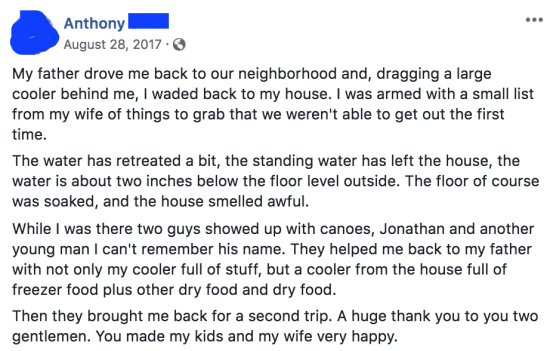
The devastation in our region was mind boggling. And so was the help Houstonians offered one another. Christina and Anthony received a small army of assistance as they began the arduous task of gutting the irreparable and cleaning the salvageable. Help from people they knew and others that “just showed up.” This happened everywhere around us.
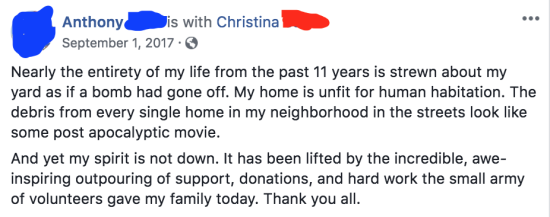
Our faith does not provide us with some sort of “suffering-protection-insurance,” but it does help us persevere by giving us plenty of models for calling out to God in the midst of suffering and an increased awareness of God’s grace in the midst of it all. This is especially present in the Psalms.
Anthony’s posts are akin to Psalms of Thanksgiving. They recall the suffering and express gratitude for gifts of God’s grace.

Christina’s posts are steeped in Lament. But that’s not a bad thing. In fact, that level of honesty is necessary for an authentic relationship with God.

The Psalms of Lament insist that we speak difficult truths to God in prayer, whether it’s simply acknowledging that these memories are painful or recognizing that many are still suffering.
I have profound respect for Christina’s honest expression of what so many are still feeling, yet are afraid to say aloud. She is a compassionate woman whose faith sustained her through ten months of recovery, demolition, and rebuilding her home. She and her family have faced trial after trial after trial since the day the rains came.
And she is lamenting: turning to God and speaking the truth.
Over the course of the next few weeks, I hope to share some of my favorite insights about the Psalms with you. But rather than re-teaching the class (which I’d be happy to do!), I plan to share a nugget at a time.
If you don’t want to miss any of these insights and nuggets, be sure to sign up for my newsletter. (In other words enter your email on the sidebar.)
If you enjoyed this post, Please Share


